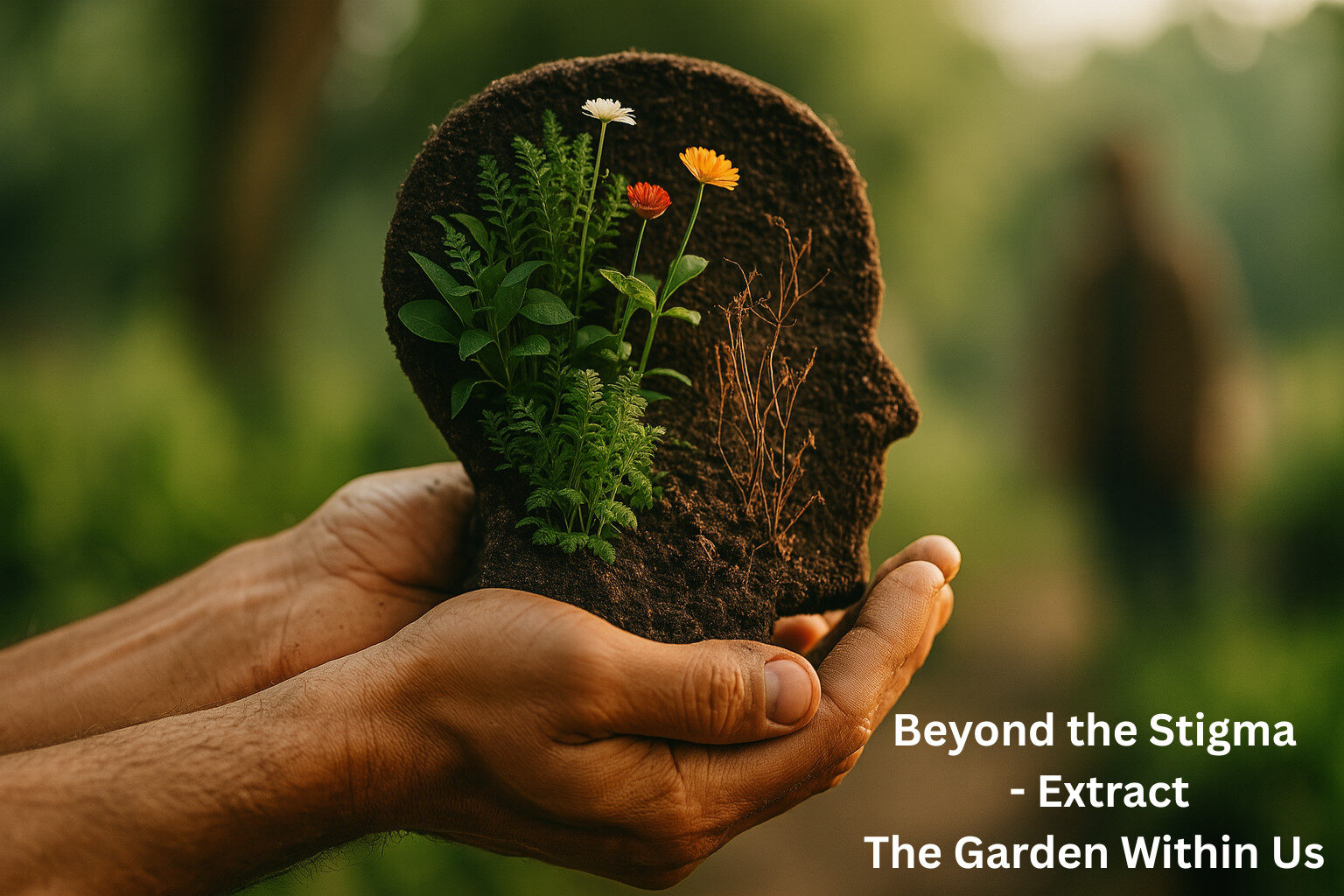

About This Post
This extract is part of my ongoing work on the book currently entitled “Mental Health – Beyond the Stigma”, featuring Chapter 1: Understanding Mental Health: From Perception to Reality. Please bear in mind that these words are still in draft form and may evolve as the manuscript develops.
Thank you to everyone who first joined the conversation on LinkedIn – your messages and comments helped launch this project, and I’m delighted to have ticked “launch a website” off my bucket list. I hope this and future extracts will excite and inspire you.
Thank you,
Mark Tonks
When it comes to understanding mental health, metaphors can be more powerful than definitions. They allow us to connect emotionally with something that otherwise feels abstract. And among all the metaphors used to describe mental wellbeing, none is more fitting, more visual, or more universally understood than that of a garden.
As a child, many of us were taught how to plant seeds, water the soil, and watch something grow. We felt the excitement of seeing the first sprout push through. Gardens were magical then – full of colour, bugs, smells, and potential. As we grow older, we often forget that magic, treating our inner world like a machine to maintain, rather than a living space to nurture.
But a garden never stops being a garden, even when neglected. It doesn’t lose its potential, it just waits.
Some days, your inner garden blooms with energy and hope. On other days, it may be tired, dry, or overrun with weeds like anxiety, self-doubt, or burnout. There are seasons when things flourish, and seasons when things feel still. That stillness isn’t a failure. It’s part of the cycle.
Like a real garden, your mental health doesn’t thrive by accident. It requires attention. Regular check-ins. Time. Support. Sometimes, it needs pruning – letting go of thoughts or environments that no longer serve you. Other times, it needs shade and rest, not more sunlight and hustle.
“A garden requires patient labour and attention. Plants do not grow merely to satisfy ambitions or to fulfill good intentions. They thrive because someone expended effort on them.” — Liberty Hyde Bailey, botanist and educator
This metaphor gives us permission to be tender with ourselves. To recognise that thriving doesn’t mean blooming every day. It can mean holding steady. It can mean holding on.
A child may understand this easily. They watch nature closely. They see that even the smallest seed needs time. Teenagers, who may be feeling the overwhelming pressure to be ‘okay’ all the time, can benefit from this metaphor, too. It says:
You are growing, even when you feel stuck.
Adults, caught up in routines and roles, often lose sight of their inner soil. We expect ourselves to function endlessly, to produce, perform, and cope without pause. But nothing in nature works that way. Everything needs downtime.
Too often, we only notice our mental health when it’s in decline; when burnout takes hold, when anxiety chokes our breath, when we find ourselves retreating from the things that once brought joy. But a gardener doesn’t just water plants when they’re dying. They check the soil, feed it regularly, and pull out weeds before they take over.
📊 Surprising Thought: According to the Royal Horticultural Society, gardening has been shown to reduce symptoms of depression and anxiety, improve concentration, and increase overall feelings of wellbeing. This applies not just to physical gardens, but also to the metaphorical one we carry inside.
Source: RHS, UK Gardening for Health studies (2021)
Tending to our mental health is not a crisis-response activity. It’s an ongoing relationship; one that requires daily attention, even in small ways. It might be choosing rest over productivity. Saying no instead of yes. Reaching out before the silence becomes too loud. Or planting a new routine – no matter how small – that makes space for reflection or joy.
In chapter 1, I explore how to recognise when your internal garden needs care, how to identify the weeds that may be draining your energy, and how to honour the unique ways your mental health responds to the seasons of your life. When we learn to tend our garden with intention, we don’t just survive – we begin to grow, and more than that, we create spaces where others feel safe to grow alongside us………….

Microsoft Solution Architect, Senior Project Manager, and Mental Health Advocate